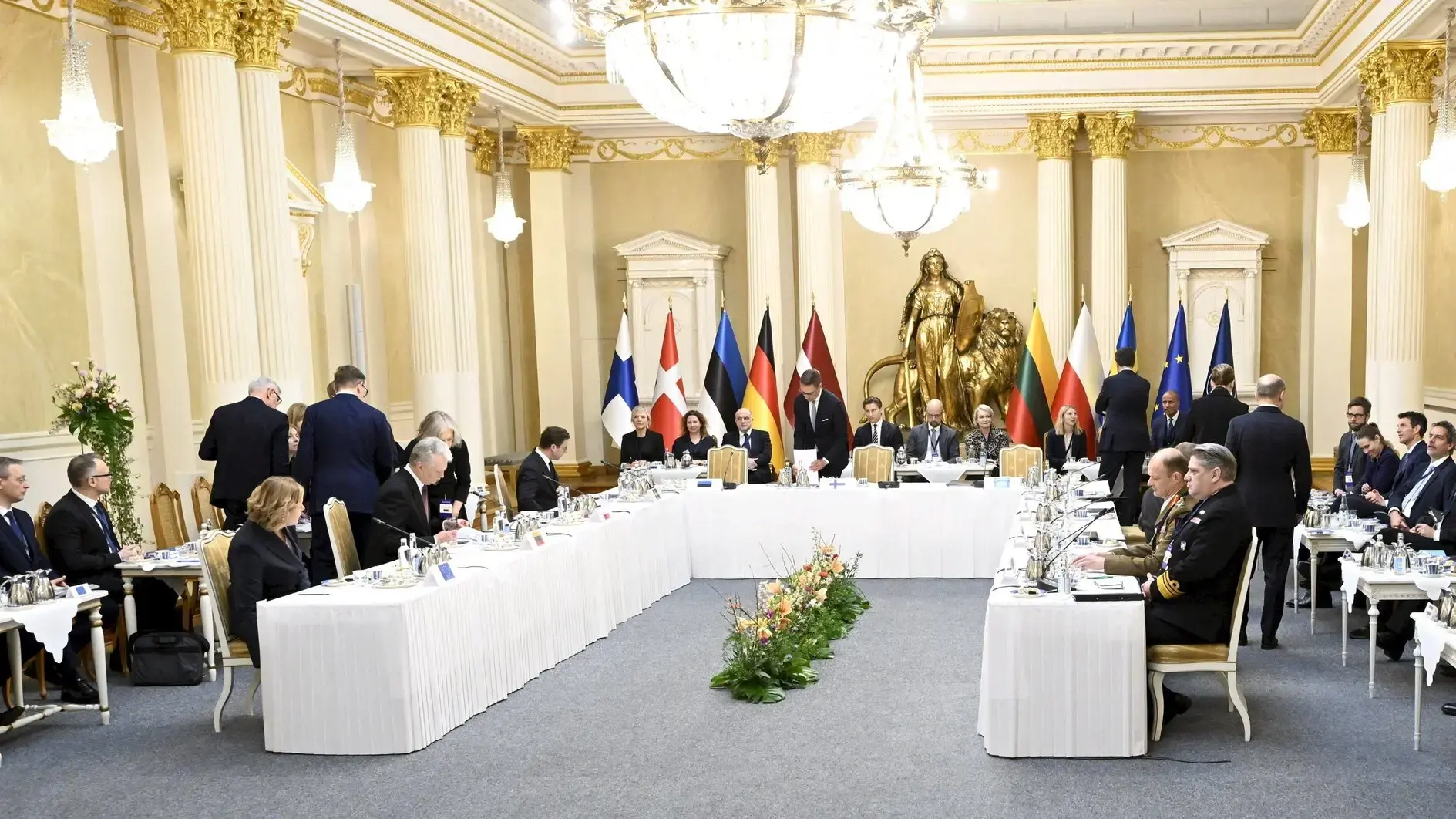
NATO leaders from Baltic nations met in Helsinki on Tuesday to discuss enhancing security measures following a series of suspected Russian sabotage attacks on undersea cables in the region.
The summit, led by Finnish President Alexander Stubb and Estonian Prime Minister Kristen Michal, focused on increasing NATO’s military presence in the Baltic Sea and countering the threat posed by Russia’s “shadow fleet.”
These vessels, often involved in hybrid warfare, are believed to be linked to recent attacks on critical energy and communication infrastructure.
NATO Secretary General Mark Rutte emphasized a firm response to these hostile actions, vowing that the alliance would bolster surveillance and ensure the protection of vital infrastructure.
Recent incidents, including the damage of cables between Finland and Estonia, have raised concerns over the vulnerability of European infrastructure.
Sweden has responded by deploying three warships and surveillance aircraft, while Finland announced the contribution of two NATO vessels.
As hybrid threats continue to rise, NATO and Baltic leaders are focusing efforts on protecting regional security and preventing further disruptions in the Baltic region.

